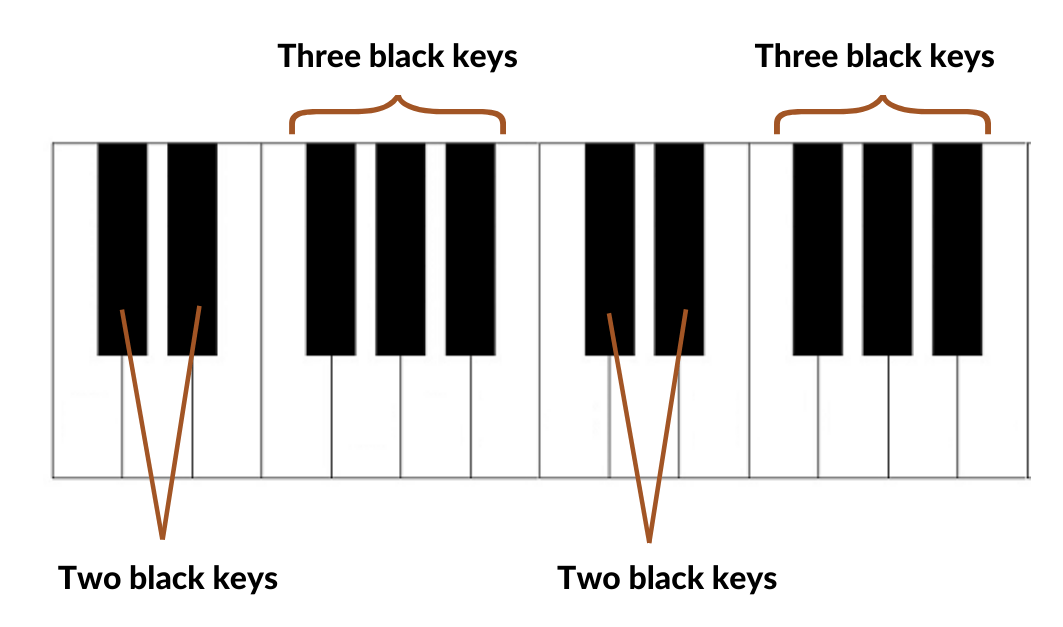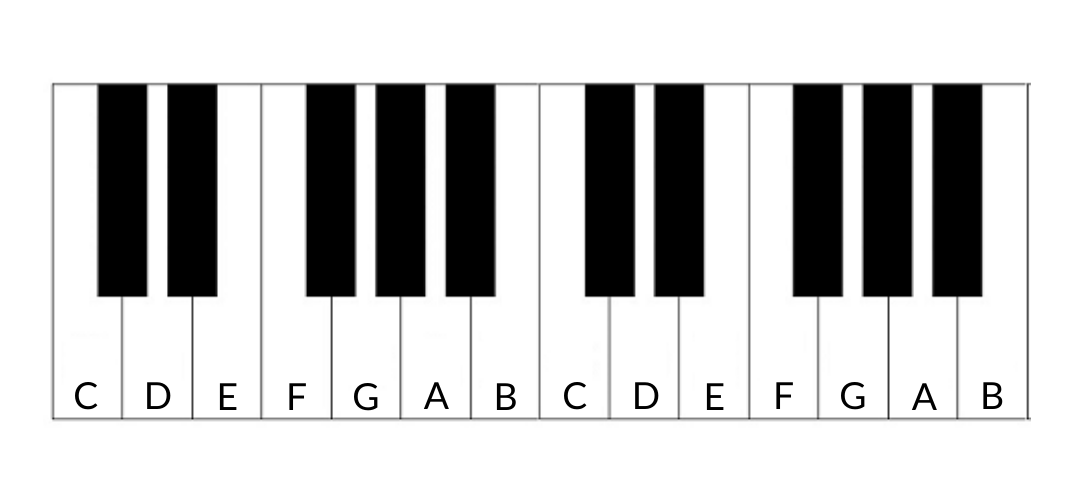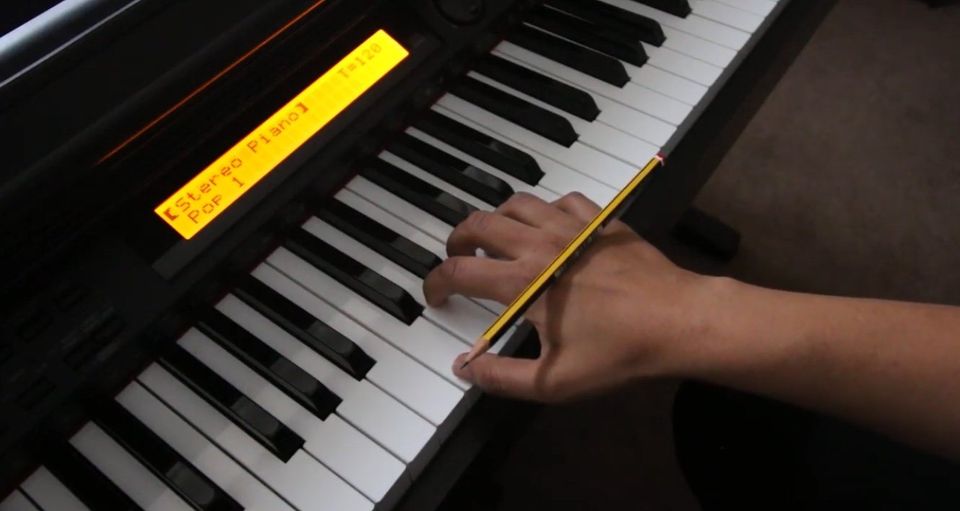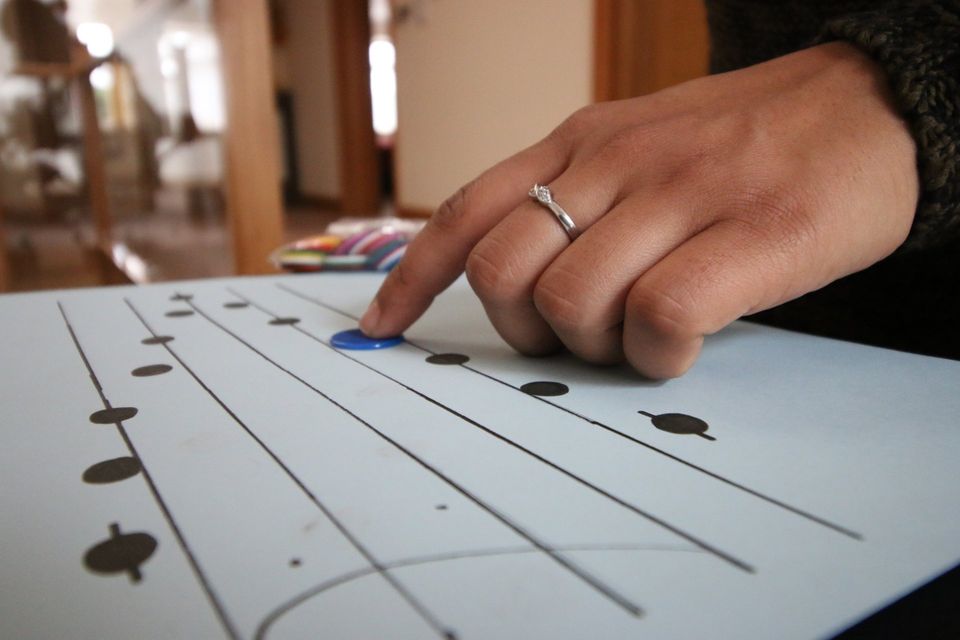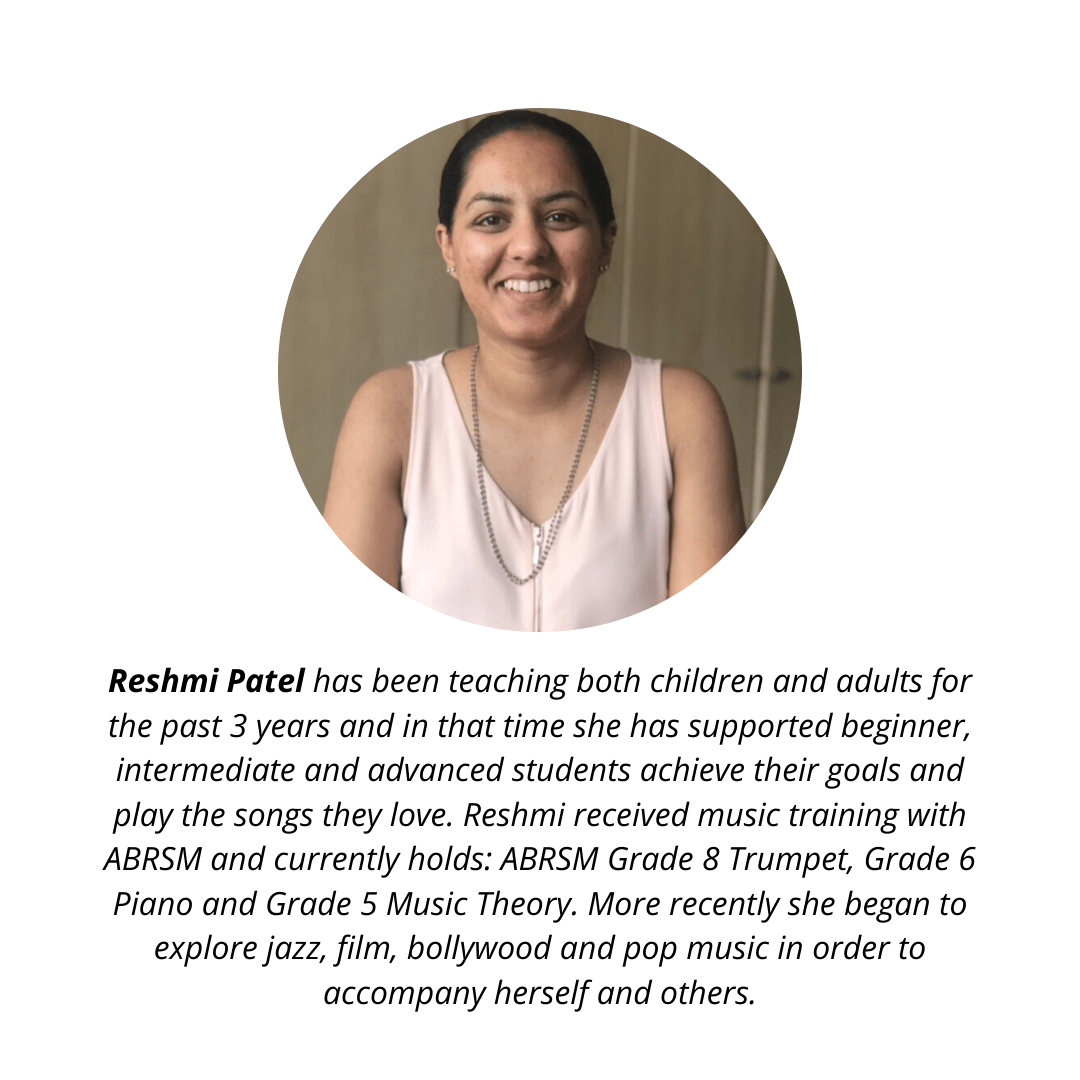Reshmi Patel • July 7, 2020
How We Can Support Students Who Learn the Piano
This is for all you beginners out there! There are certain things beginner piano players should practice to see results fast and avoid frustration (and quitting).
When you start learning the piano, it can be really hard to know WHAT you’re supposed to practice, especially if you don’t have a teacher to help you. This article will help guide you through 3 exercises you can start practicing RIGHT NOW to help you get comfortable at the keys and help your fingers connect to your brain.
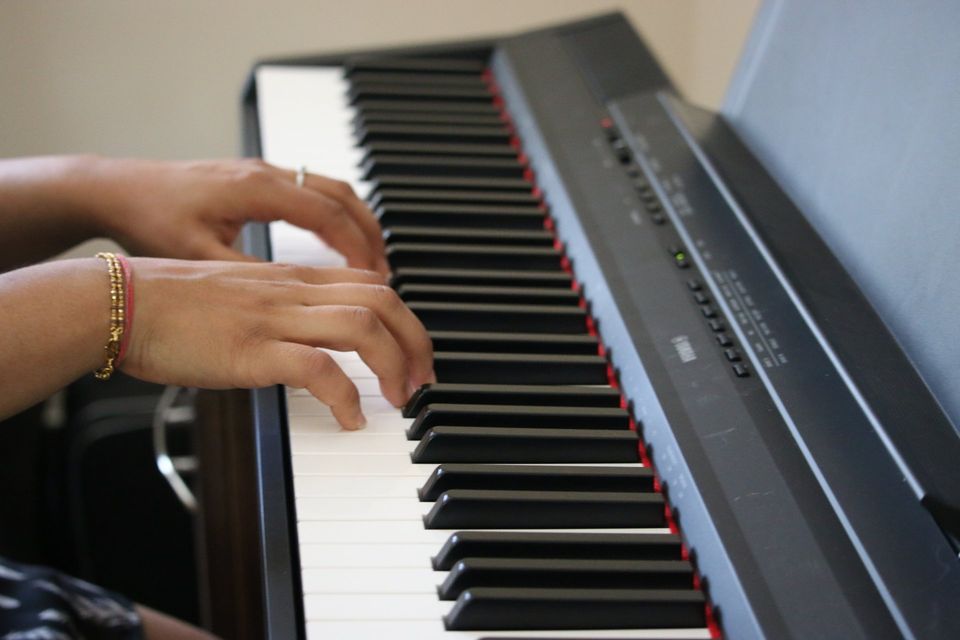
1. Keyboard Geography
When we first sit at the piano as a beginner it can sometimes be overwhelming. Whether you have a small keyboard or a full-size grand piano you are sitting in front of a load of black and white keys which quite frankly all look the same!
A few ways you can begin to familiarise yourself with the layout of the keyboard is by spotting patterns. For example: notice how the black key come in sets of two followed by a set of three.
Once you’ve done this you can then begin learning the letter names of the white keys. In traditional music we only use the letter names in the alphabet ranging from A – G. After this, we repeat this pattern as supposed to using the rest of the English alphabet.
This can be illustrated in the images below.
2. Try A Variety of Warm Up Exercises
One of our favourite exercises is called ‘Pencil Balance’.
If practiced regularly, this exercise will help you master your hand position when playing the piano.
Typically, when you’re playing the piano you want to keep the wrist and arm flat so that the weight from the shoulders and back can come straight down right through the tips of the fingers. To help keep your wrist in a good position, try to balance a pencil on your hand so that your wrist is in line with your knuckles. The reason we believe this is the perfect exercise for pianists, is because it doesn’t involve too many complications. If your wrist is slightly too high or drops too low, the pencil will not balance. Therefore, it’s easy to spot when your hand position is incorrect.
3. Recap Theory Material
Often, students can forget how important the theory elements are in music.
The reason learning the theory can improve our playing is because this teaches us why and where the music is written in a particular style. Therefore, we can spot patterns quicker when reading, writing and performing the music.
Today, we are fortunate enough to have many online and physical resources which can help boost our music theory knowledge and understanding.
Online Apps we’d recommend:
- Flowkey
- Music Tutor
- ABRSM Theory Works
- Metronome
- Notes Teacher
When it comes to physically learning the material, we’d recommend using posters or flashcards which you can have a flick through regularly to either read and/or test yourself. You can either make these yourself or use the ones we’ve created on our shop page.
Reminder: 'Practice is the repetition of an action with the goal of improvement and it helps us perform with more ease, speed and confidence.' – TED Talk on How to Practice Effectively
If you wish to know more about these warm up exercises and resources, feel free to take a look around our website or connect us directly.
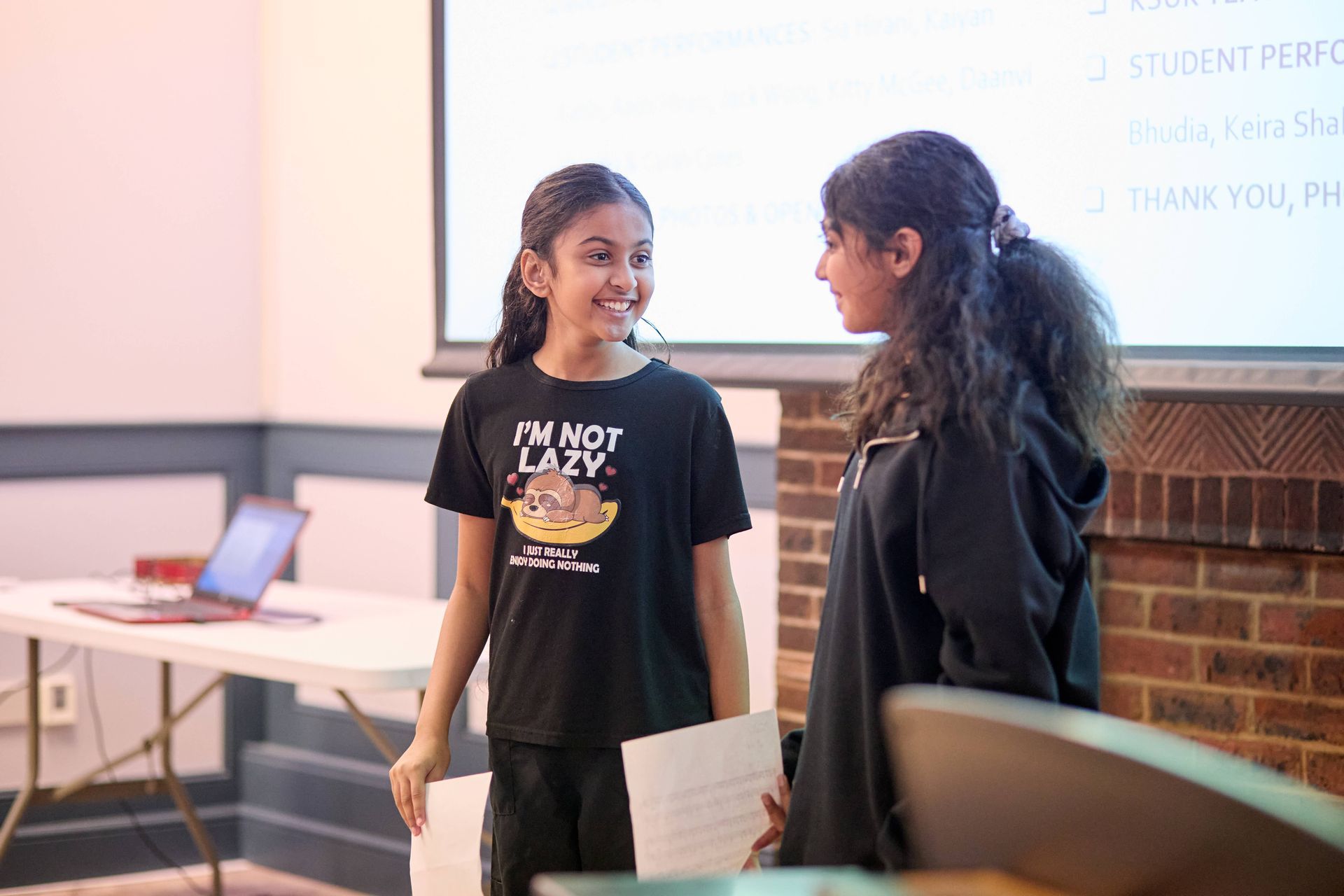
Practicing the piano should be both productive and enjoyable. Here are some expert tips to make the most out of your practice sessions: 1. Warm Up Properly Before diving into your pieces, warm up with finger exercises, scales and arpeggios to improve dexterity. 2. Use the 3C’s: Confidence, Communication, and Community At our piano school, we emphasize these three pillars to accelerate learning: Confidence: We provide regular feedback and encouragement to help students believe in their abilities. Communication: Regular progress check-ins ensure that students stay on track and adjust learning strategies as needed. Community: Through our student concerts we provide students with the opportunity to share their progress and learn from each other, making the experience more fulfilling. 3. Mix Up Your Practice Routine Avoid boredom by alternating between technical exercises, sight-reading, and playing your favourite songs. 4. Take Breaks Short breaks during long practice sessions prevent mental fatigue and improve focus. 5. Play for Others Sharing your music with family, friends, or at our regular concerts helps you gain confidence and refine your performance skills. By incorporating these methods, you’ll improve faster while enjoying the process. Get in touch to find out more information here: www.keysoundsuk.com/contact

Music theory is the foundation of great piano playing. Here are the essential concepts every beginner should know: 1. Notes and the Musical Alphabet Music consists of 12 notes: A, B, C, D, E, F, G, and their sharps and flats. Learning the notes on the keyboard is the first step. 2. Understanding Rhythm and Time Signatures Time signatures tell you how many beats are in each measure. The most common is 4/4 time, where each measure has four beats. 3. Chords and Scales Scales build finger strength and understanding of key signatures, while chords provide harmonic structure. Start with major and minor scales, then move to simple triads. 4. Intervals and Ear Training Intervals (the distance between two notes) help with sight-reading and ear training, allowing you to recognize harmonies in music. 5. Reading Sheet Music Learning how to read notes on the staff will allow you to play a wider variety of music and become more independent as a pianist. 6. Applying Theory to Playing Understanding theory isn’t just academic - it helps you improvise, compose, and interpret music more expressively. By mastering these basics, you’ll build a solid foundation for piano success! Get in touch to find out more information here: www.keysoundsuk.com/contact
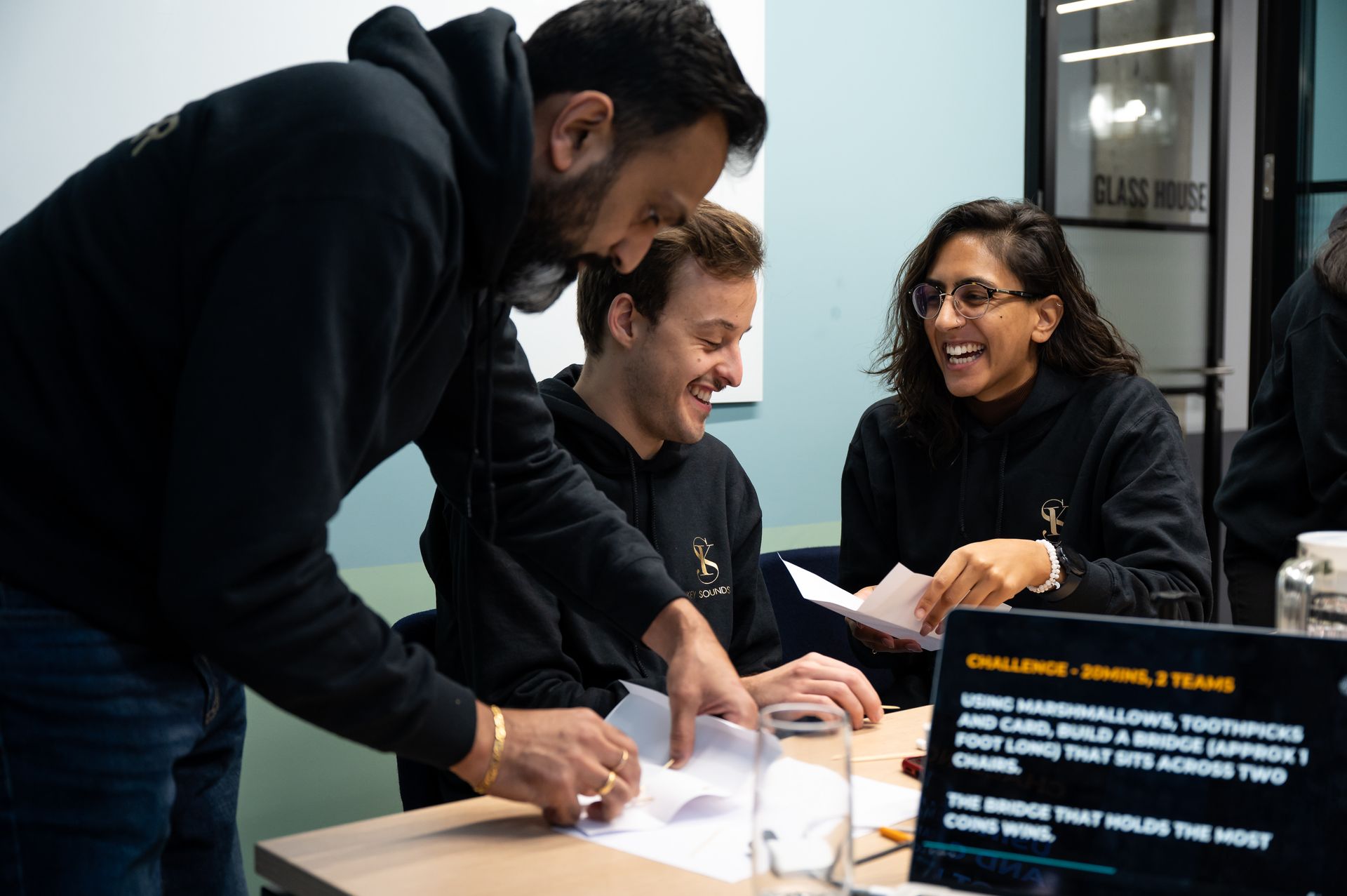
Learning to play the piano is more than just mastering an instrument, it’s a skill that can enrich your life in countless ways. Whether you dream of a full-time career in music, a side gig performing or teaching, or simply want to enjoy playing as a hobby, the piano offers lifelong benefits. Here’s why sticking with piano practice, whether you’re a beginner or an intermediate player, is always a great idea. 1. Opens Doors to Musical Career Opportunities If you’re passionate about music, learning the piano can lead to exciting career paths. You could become a professional musician, a music teacher, an accompanist, or even a composer. With dedication and practice, the piano can be a stepping stone to a fulfilling career in the music industry. 2. A Side Gig with Endless Possibilities Even if you don’t pursue music full-time, piano skills can provide additional income opportunities. You could play at events, teach lessons part-time, or collaborate with other musicians. Having a musical side gig can be both financially and personally rewarding. 3. Enhances Cognitive and Emotional Well-Being Studies show that playing the piano improves memory, coordination, and concentration. It also serves as a creative and emotional outlet, helping to relieve stress and boost overall mental well-being. 4. Builds Confidence and Discipline Learning piano requires patience, practice, and perseverance. As you progress, you’ll develop confidence in your abilities and a sense of achievement that carries over into other areas of life. 5. Lifelong Enjoyment as a Hobby Even if you never perform professionally, playing the piano is a rewarding lifelong hobby. Whether you’re playing for yourself, family, or friends, music brings joy and relaxation at any age. 6. Social and Collaborative Opportunities Piano playing isn’t just a solo activity. You can join bands, accompany singers, or participate in community events. Music fosters connections and brings people together in meaningful ways. Whether you pursue piano as a career, a side gig, or a hobby, the benefits are undeniable. From cognitive growth to creative expression, piano playing is a skill that stays with you for life. Keep practicing, stay motivated, and enjoy the journey because every note you play adds value to your life. Get in touch to find out more information here: www.keysoundsuk.com/contact

